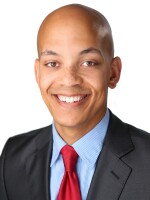KELLY MCEVERS, HOST:
In the House, the Republicans' failure to repeal the Affordable Care Act has reopened some old divisions in the party. The conservative House Freedom Caucus opposed the health care bill which was backed by the White House and the Republican leadership, and that forced the leadership to pull the bill late last week. With more big legislative priorities still to come, NPR's Geoff Bennett looks at what's next for the Freedom Caucus.
GEOFF BENNETT, BYLINE: The House Freedom Caucus is resurgent. The group of roughly three dozen hardline conservatives was at the leading edge of Republican opposition during the Obama years. It wasn't clear how relevant they would be with a Republican in the White House. But in helping to kill the GOP health care plan, Freedom Caucus members once again delivered on their reputations as anti-establishment agitators, prompting yet another call for party unity from House Speaker Paul Ryan.
(SOUNDBITE OF ARCHIVED RECORDING)
PAUL RYAN: I don't want us to become a factionalized majority. I want us to become a unified majority, and that means we're going to sit down and talk things out until we get there.
BENNETT: Some Freedom Caucus members are reassessing their no-compromise brand of conservatism, with their tactics fueling fresh resentment within the GOP. Joe Barton is the senior member of the Texas Republican delegation and belongs to the Freedom Caucus.
JOE BARTON: We are not an independent group. We are part of the Republican conference. We have an obligation to govern.
BENNETT: Over the weekend, Barton's fellow Texan, Congressman Ted Poe, quit the caucus on account of what he called a mob mentality that had become destructive. Poe's exit is the group's first defection since it emerged in 2015. Since then, the caucus has acted as its own political party within the GOP, working to shift power away from party leadership toward rank-and-file members and wielding strategies to advance its limited government ideals.
Freedom Caucus member David Brat of Virginia says he has little to gain in following some of his colleagues' advice to start playing nice.
DAVID BRAT: I don't feel compelled. I feel compelled to represent my constituents.
BENNETT: Brat defeated former Republican Majority Leader Eric Cantor in a 2014 primary, one of the biggest upsets in recent political history.
BRAT: Up here in the bubble, you're all, like, oh, there's a deal. There's tremendous pressure on you. Why can't you just do this - well, because there's 800,000 people back home, and we represent them.
BENNETT: The Freedom Caucus is small, but when it acts as a block against legislation it opposes, it's big enough to exploit the Republican Party slim majority in the House, unnerving House leadership. That's one reason why it has the support of deep-pocketed, like-minded outside political groups.
As Republicans recover from their health care defeat, the White House and GOP leaders are hoping to claim tax reform as their first major legislative achievement. It's a heavy lift that could take months. Freedom Caucus members say they're in the beginning stages of considering how they'll approach the coming tax debate. Figuring out what, if any, concessions they might demand.
Congressman Barton says the health care fight was instructive since most Freedom Caucus members are relatively recent arrivals to Capitol Hill, having been elected in 2010 or later. He says it was their first crack at governing with Republicans controlling all the levers of power in Washington.
BARTON: For the newer members, this is the first time it's been a big-time issue they've had to deal with at the federal level. I think it's just been a learning process. Our leadership - this is a big one for them to try to lead.
BENNETT: Congress is facing a more immediate and much more basic test of governance. That's passing a bill to keep the government open ahead of an April 28 deadline. The last government shutdown was orchestrated in part by North Carolina Congressman Mark Meadows, who is now the chairman of the House Freedom Caucus. Meadows says the group will be more flexible in this debate than they were on health care. Geoff Bennett, NPR News, Washington. Transcript provided by NPR, Copyright NPR.



